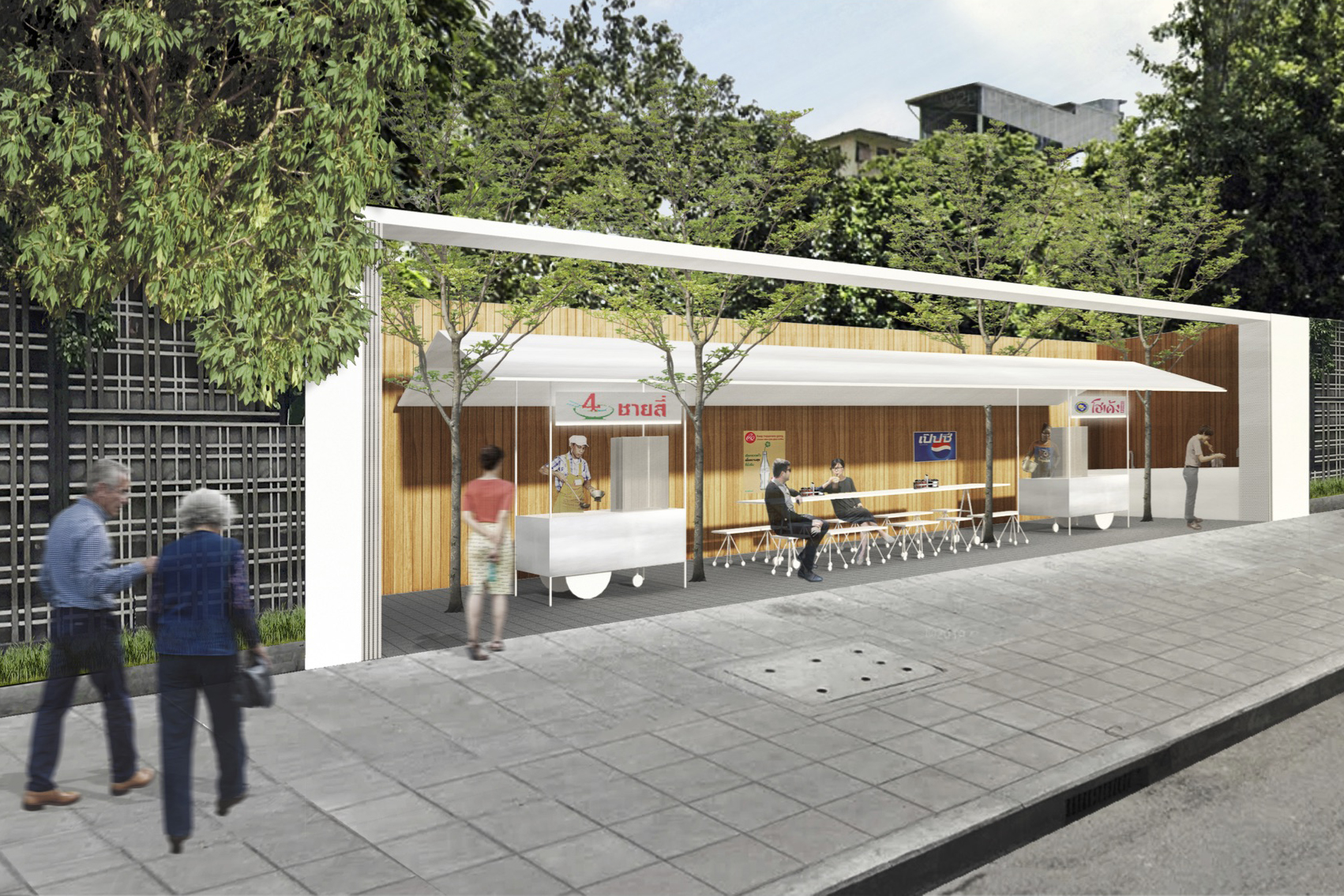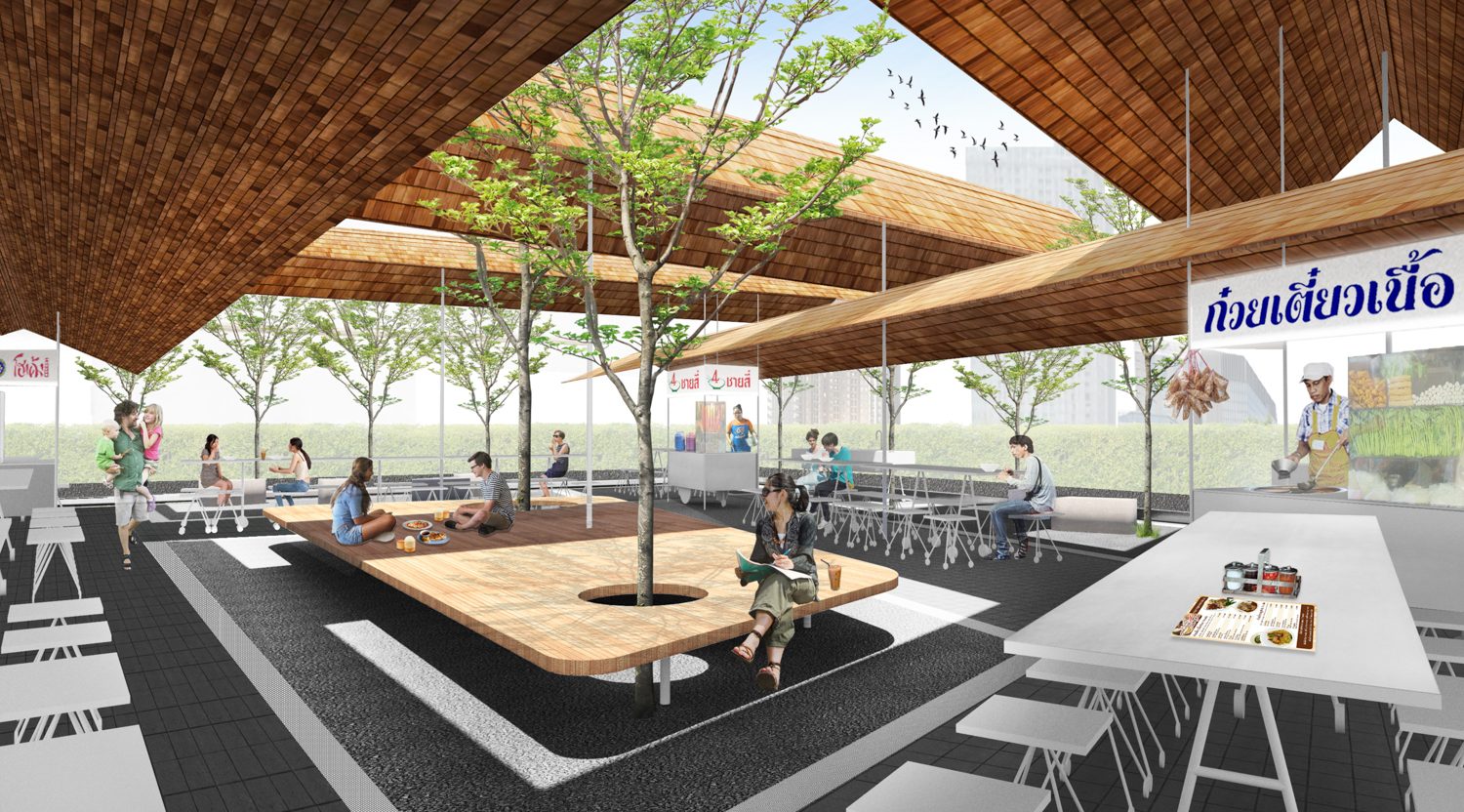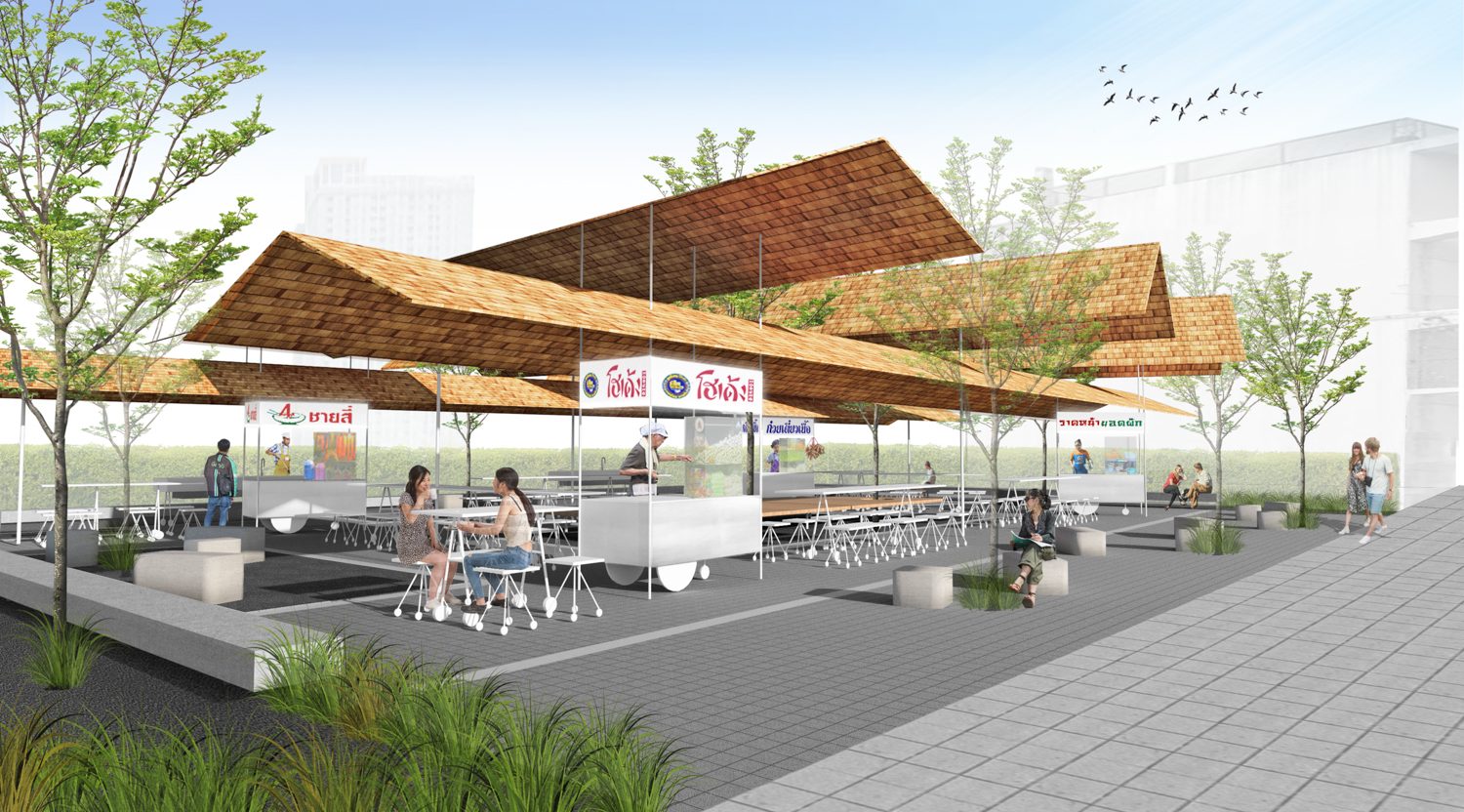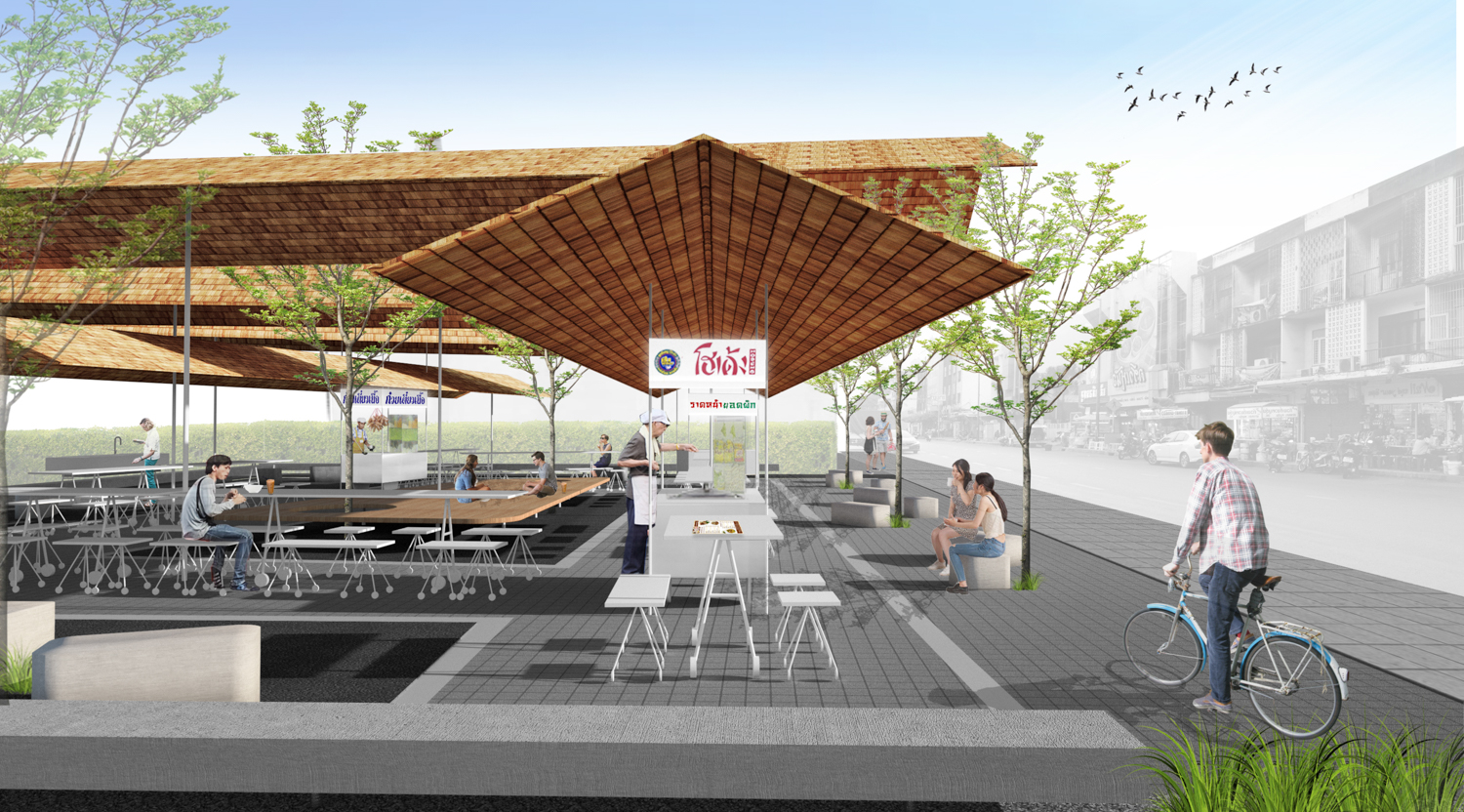INTRODUCING THE LATEST PROPOSAL BY CLOUD-FLOOR, THE POCKET FOR STREET FOOD PROJECT THAT AIMS TO MAKE PEACE FOR THE BANGKOK SIDEWALK
TEXT: NAPAT CHARITBUTRA
PHOTO: COURTESY OF CLOUD-FLOOR
(For Thai, press here)
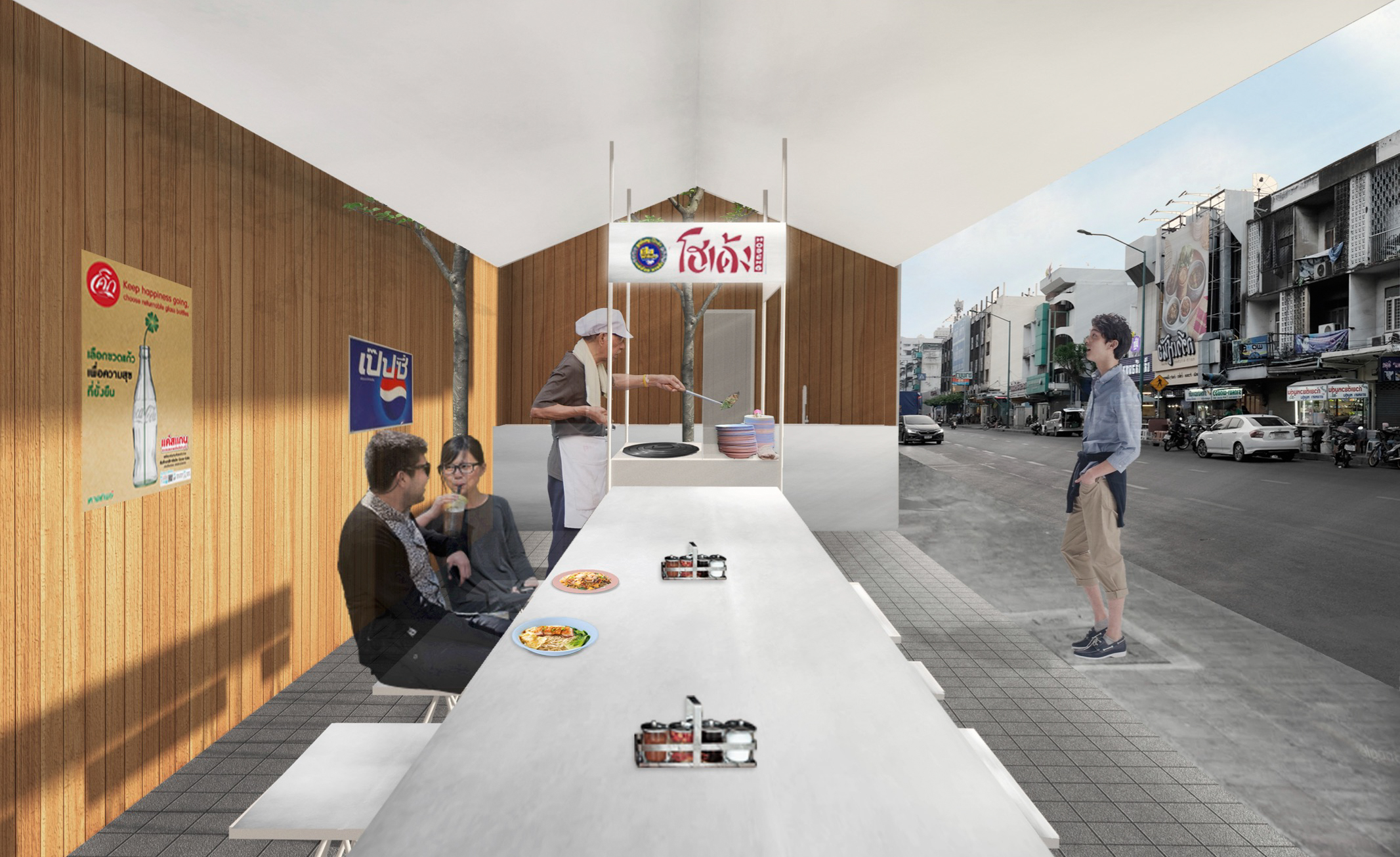
70 percent of Thai city dwellers dine out, thanks to constraints in everyday life including long commuting time. 70 per cent of these people’s favorites is street food.
Street food is most salaried workers’ main artery for now and, given the current economic situation, unforeseeable future. This inevitable dining behavior, though, comes with immense hidden cost. For a few clearer examples, some newly renovated sidewalks start to deteriorate and be filled with several kinds of trash and, even worse, some vendors put the leftover cooking oil directly into the street drainage.

This explains why the Bangkok Metropolitan Administration (BMA) have been attempting to regulate sidewalks in many parts of the city, by easing some restrictions and locating new areas for the vendors. A clear example is in Pak Khlong Talat area where sidewalks are now much cleaner, to the expense of some vendors who cannot attract as many customers in their new locations.
Sidewalk regulation is necessary, but also important is to make sure that it’s mutually satisfactory and equally beneficial for all concerned parties–vendors, customers and BMA–, while being able to solve the pedestrian’s right issue. This has led to a new project “The Pocket for Street Food” by Cloud-floor, an alternative architectural practice and global think-tank for urban development.

Their main idea is to propose a semi-pubic space, or Privately Owned Public Space (POPS) which is still owned by the private sectors who would now allow it for public activities to manage and solve this problem.
Cloud-floor use the Ari-Pradiphat area as their case study. They propose real estate developers share some space for food vendors and their dining tables by allowing partial use of space in finished projects, or small temporary food markets in developing ones. The advantage is no one would lose benefit as most of these condominium projects are by the main road, close to the mass transportation systems and communities, and spread out in the entire area. “The Pocket for Street Food”, then, would not be out of the usual circulation. Also, the vendors are roofed and their hygienic and sanitary practices can be more strictly regulated by the project owners.
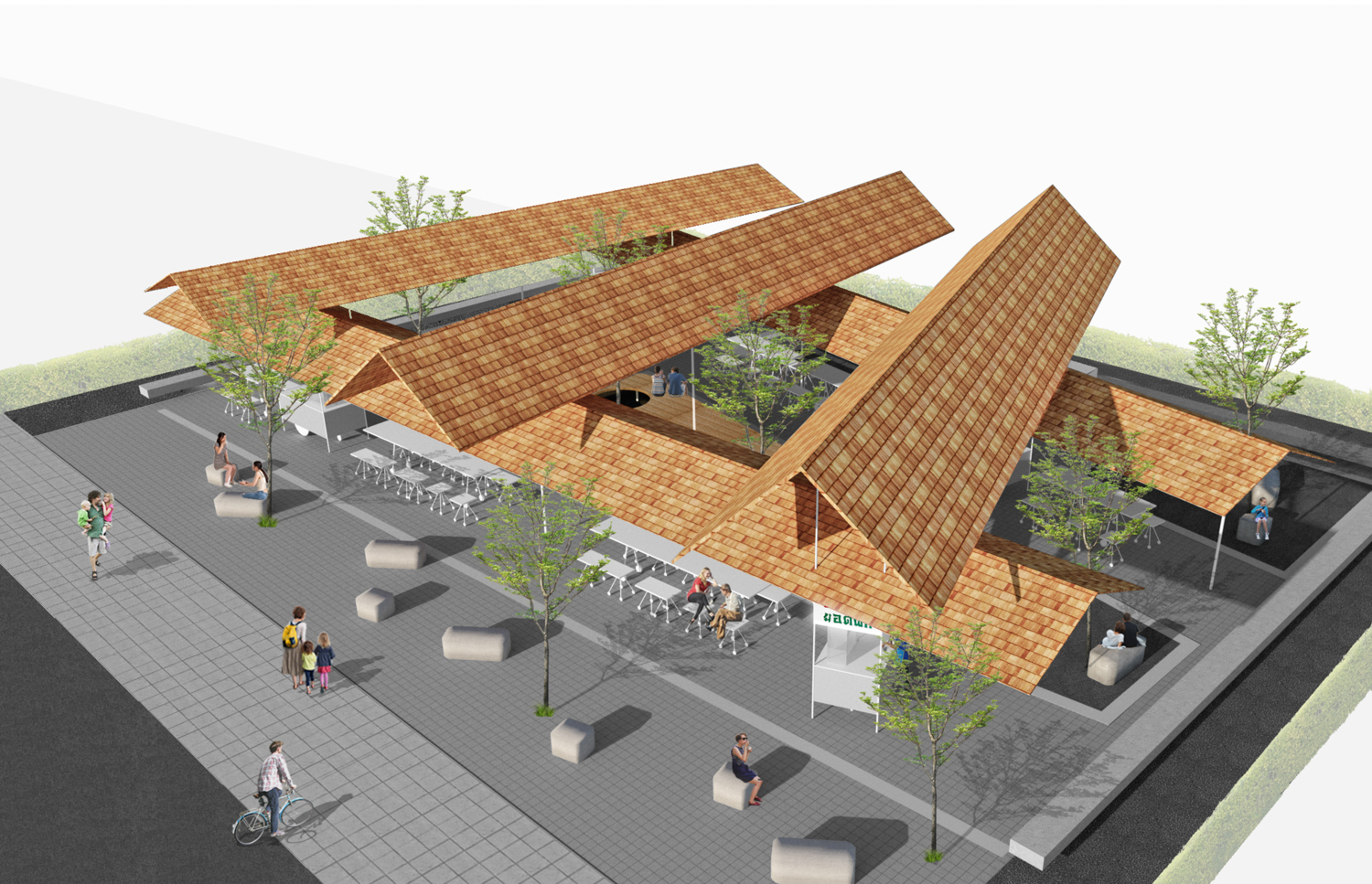
For this good idea to be realized, though, the government’s co-operation is a must, legally speaking. A new law needs to be passed for POPS to be certified. Also, the private sectors need to make benefit from this special arrangement, on top of the vendors’ rent.
Cloud-floor has studied New York City’s Incentive Zoning Mechanism, effective since 1961, which has been offering developers extra floors in their high-rises in exchange for semi-public plazas or arcades in their projects. After some consideration, the developers realize that not only can they can build more units and make more profit but they can also take part in the urban and environmental development as well as create new Corporate Social Responsibility (CSR) projects to develop a good relationship with the neighborhoods. Who wouldn’t take the city’s offer?
“The Pocket for Street Food” is an interesting project with high potential, further depending, of course, on the response from both the public and private sectors. Besides, this would lead to another step for street vendor regulation namely their registration which will guarantee that not only is our world-famous street food delectable but its vendors are also more disciplined and socially responsible than ever.

